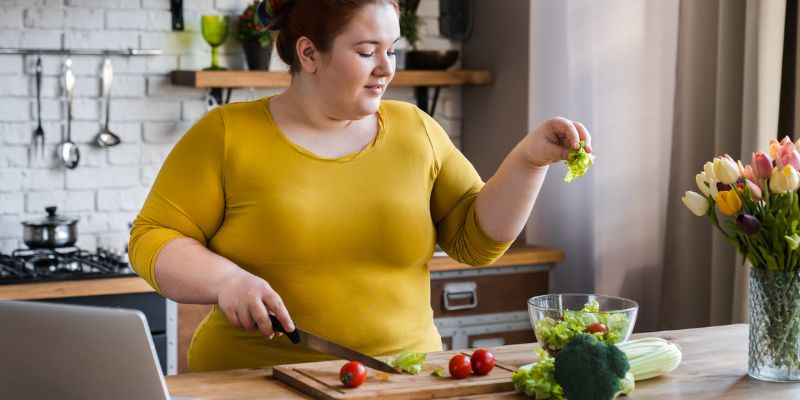Although reality TV has been accused of promoting unrealistic body images and encouraging eating disorders, a new study suggests it may now be playing a role in obesity.
In reality TV shows, such as Love Island and Keeping Up with the Kardashians, researchers found that ‘junk food’ appeared in almost 90 per cent of the hundreds of episodes they analysed.
- More evidence links junk food to heart disease and stroke
- Human memory prioritises junk food locations over healthier options
People usually associate reality TV with boosting negative body images that are ‘too thin’ yet researchers from Nottingham Trent University suggest it could be encouraging viewers to consume unhealthy snacks.
Lead author of the study and lecturer in psychology, Dr Alexander Barker, cautioned that the young people, who “widely viewed” reality shows, are likely to consume what their “inspirational role models” consume.
Dr Barker added that the existing guidelines regarding what imagery children can be exposed to through TV “are not sufficient and need revising”.
The study analysed every episode of 20 reality TV series shown in English-speaking countries from 2019 to 2020. The data was used to establish how exposed viewers were to tobacco, alcohol and foods that are high in fat, sugar and salt (HFSS).
The TV shows analysed included Love Island, Geordie Shore, Made in Chelsea, Married at First Sight, The Only Way is Essex and Keeping Up with the Kardashians.
Researchers recorded the number of one-minute intervals referencing unhealthy products, including them being consumed, discussed or in the background.
Junk foods were featured in 88 per cent (234 episodes) of the reality TV show episodes analysed by the researchers and junk food featured in 13 per cent of the entire run-time of all the shows combined.
The results indicated that Coca Cola was the most commonly shown junk food. It was followed by Pringles, slush puppies, Wotsits and Ferrero Rocher. The top 10 unhealthy food and drinks also included Heinz tomato sauce, Walkers crisps and Pepsi.
The study also singled out Deliveroo, an app that allows people to order junk food direct to their door via their smartphone, and noted that it was problematic.
Compared to shows made in the US and Australia, British-made programmes were more likely to feature junk food.
The study also revealed that, compared to on-demand streaming service Netflix, there was ‘significantly more’ tobacco on broadcast TV programmes.
The audience viewing figures in the UK for 15 of the 20 shows revealed that 1.9 billion impressions were delivered to viewers, including 21.4 million children.
The researchers cautioned that, although reality TV is not always aimed at children, it “appeals to young people by providing a form of escapism and aspirational realism for viewers”.
The study comes at a time when obesity rates across the UK are rapidly rising. More than one in four adults (28 per cent) are obese and one in three young people are obese or overweight by the time they leave school.
Obesity is a major issue in the UK with the NHS spending more that £6 billion per year treating obesity-related health problems. This is set to increase to £9.7 billion by 2050. In the UK, obesity was related to 876,000 hospital admissions in 2019 and is the second largest cause of cancer.
The study also analysed tobacco which rarely features in the reality TV episodes. According to the researchers, it featured in only 43 episodes (two per cent), of which it was showed or alluded to in 227 one-minute intervals (two per cent).
On the other hand, alcohol was the most featured of all the unhealthy items. It featured in 5,167 one-minute segments (39 per cent) of 258 episodes (98 per cent).
Results suggested that, via the examined programmes, 3.5 billion British viewers (including 12.6 million children) were exposed to alcohol and 157.4 million (including 24,000 children) were exposed to tobacco.
- Government set to ban junk food adverts till 9pm
- Doctors call on government to tax junk food, meat and dairy products
The researchers believe that their findings demonstrate that reality TV is a ‘significant source’ of exposure to fatty, salty and sugary foods, along with alcohol and tobacco.
Dr Barker explained: “The current study provides evidence that reality TV programmes are a significant source of exposure to tobacco, alcohol, and junk food imagery.
“These programmes are widely viewed and seen by young people and the nature of reality TV, with its inspirational role models, is likely influencing smoking, drinking, and food consumption choices in young people.
“The current regulations around the depiction of this imagery in popular programmes are not sufficient and need revising to prevent youth exposure.”
Ofcom currently restricts tobacco and alcohol from being shown in television programmes made for children and stops shows aired before 9pm from glamorised these unhealthy items.
Restrictions in place prevent HFSS foods from being advertised between shows aimed at under 16-year-olds and, from next January, junk food brands will not be allowed to advertise on television before 9pm.
The researchers recommended that stricter controls should be put in place to limit services and brands from promoting unhealthy items in and around television programmes.
Professor Sir Ian Gilmore, chair of the Alcohol Health Alliance UK, said: “Seeing people drink alcohol on our television screens glamourises drinking and helps create a culture where alcohol is seen as an essential part of everyday life. It also represents a form of alcohol marketing.
“As alcohol is an age-restricted, health harming product, children and young people in particular should be protected from exposure to alcohol marketing on the television shows that they watch. Numerous studies show that the more often young people are exposed to alcohol marketing, the more likely they are to start drinking at an earlier age.”
He concluded: “This research demonstrates the extent to which the British public is bombarded by alcohol marketing and imagery. If we expect any change, the Government must introduce comprehensive restrictions to ensure that young people are protected from alcohol marketing in all its forms in TV programming.”
The study was published in the Journal of Public Health.




